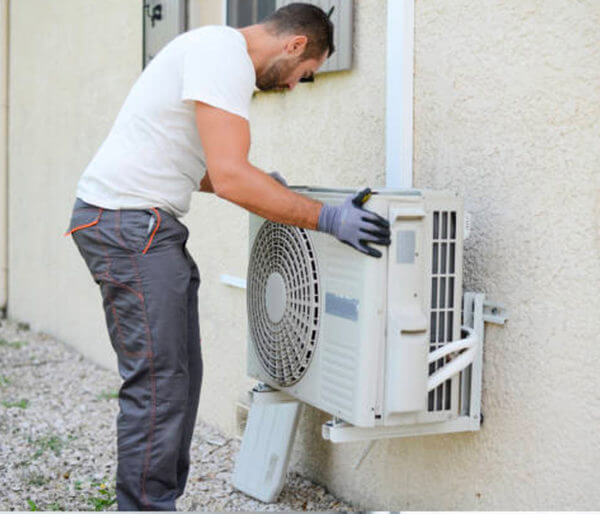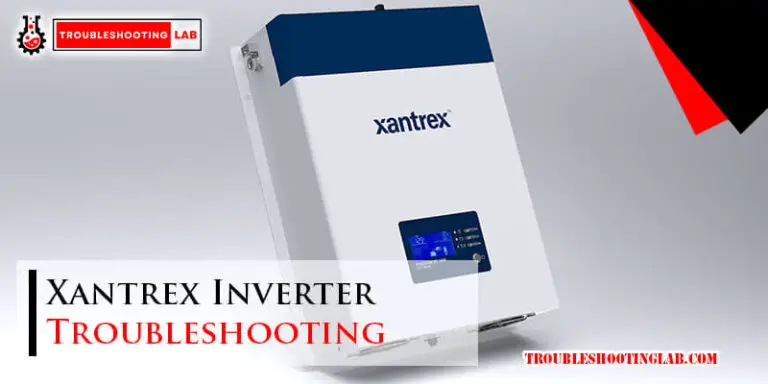Mitsubishi Mini Split Troubleshooting: Expert Solutions for Optimal Performance
If your Mitsubishi Mini Split is not working, check the thermostat settings and power source. Common issues can be resolved with basic troubleshooting steps.
Ensure the unit is getting power and the thermostat is set correctly. If the problem persists, consult a professional for further assistance. Having a Mitsubishi Mini Split System at home can provide efficient heating and cooling, but when it malfunctions, it can be frustrating.
Understanding the common troubleshooting techniques for your Mitsubishi Mini Split can help identify and resolve issues quickly. In this guide, we will discuss some of the common problems that may occur with your Mitsubishi Mini Split and how to troubleshoot them effectively. By following these steps, you can save time and money by potentially avoiding unnecessary service calls and repairs. Let’s get started with troubleshooting your Mitsubishi Mini Split system.

Common Issues
When it comes to troubleshooting Mitsubishi mini splits, there are several common issues that homeowners encounter. These issues often include power troubles, temperature fluctuations, and airflow problems. Understanding the potential problems that may arise with your mini split system can help you diagnose and resolve issues more effectively, ensuring that your system continues to operate smoothly.
Power Troubles
If your Mitsubishi mini split is experiencing power troubles, start by checking the power supply and ensuring that the unit is securely plugged in. Also, check the circuit breaker or fuse to confirm that it hasn’t tripped or blown. Furthermore, inspect the remote control and ensure that it has working batteries and is correctly synced with the indoor unit.
Temperature Fluctuations
Temperature fluctuations in your mini split system can be due to various factors. Check the thermostat settings to ensure that they reflect your desired temperature accurately. Additionally, clean the air filters regularly to prevent airflow blockages, and inspect the outdoor unit for any debris or obstructions that may hinder its performance.
Airflow Problems
Airflow problems can lead to reduced efficiency and comfort issues. Begin by inspecting the air filters for dirt or debris accumulation, and clean or replace them if necessary. Additionally, check the indoor and outdoor units for any obstructions and ensure that the airflow vents are not obstructed by furniture or other objects.
Diagnosis Methods
When troubleshooting issues with your Mitsubishi mini split system, it’s essential to follow a systematic approach to diagnose the problem accurately. Here are the key diagnosis methods to consider:
Checking Power Supply
Before delving into advanced troubleshooting, ensure that the mini split unit is receiving power. Check the main electrical panel for any tripped breakers and verify that the unit is plugged in securely. Consider using a voltmeter to test the power supply to the unit to ensure it’s sufficient.
Examining Thermostat Settings
Incorrect thermostat settings can lead to cooling or heating issues. Verify that the thermostat is set to the desired temperature and mode (cooling or heating). Also, ensure that the batteries in the thermostat are not depleted and replace them if necessary.
Inspecting Filters
Clogged or dirty filters can obstruct airflow and affect the performance of the mini split system. Regularly check the filters for buildup of dust and debris, and clean or replace them as needed. Clean filters ensure proper airflow and can prevent system malfunctions.
Do-it-yourself Fixes
If your Mitsubishi mini-split system is acting up, there are some simple Do-It-Yourself Fixes you can try before calling in a professional. Follow these steps to troubleshoot common issues with your Mitsubishi mini-split.
Cleaning Filters
Regularly cleaning filters is essential for the efficient operation of your Mitsubishi mini-split system. Dirty filters can obstruct airflow and reduce the system’s performance. Follow these steps to clean your filters:
- Turn off the mini-split system before removing the filters.
- Use a vacuum cleaner or warm, soapy water to clean the filters.
- Allow the filters to dry completely before reinserting them into the unit.
Inspecting Outdoor Unit
The outdoor unit of your Mitsubishi mini-split system plays a crucial role in its overall performance. Follow these steps to inspect the outdoor unit:
- Check for any obstructions around the unit that may be affecting airflow.
- Ensure the unit is free of dirt, debris, and leaves that could hinder its operation.
- Inspect the unit for any visible damage or signs of wear and tear.
Resetting The System
If your Mitsubishi mini-split system is still not working properly, you can try resetting the system to resolve minor issues. Follow these steps to reset your system:
- Locate the reset button on the indoor unit of your Mitsubishi mini-split system.
- Press the reset button and hold it for a few seconds until you hear a beep.
- Wait for the system to restart and then check if the issue has been resolved.
Professional Assistance
When it comes to troubleshooting issues with your Mitsubishi mini split, professional assistance can be invaluable. While there are some minor problems that you can address on your own, there are certain situations where the expertise of a trained technician is necessary. In this section, we’ll discuss the importance of regular maintenance, when to call a technician, and how to choose a reliable service provider.
Importance Of Regular Maintenance
Maintaining your Mitsubishi mini split system through regular inspections and tune-ups is crucial for ensuring optimal performance and longevity. Regular maintenance helps identify potential issues before they become major problems, saving you time, money, and unnecessary inconvenience. Here are some key reasons why regular maintenance is essential:
- Prevents breakdowns: Regular maintenance helps catch problems early on, reducing the risk of unexpected breakdowns and the accompanying discomfort.
- Improves energy efficiency: A well-maintained system operates more efficiently, saving you money on energy bills in the long run.
- Enhances indoor air quality: Regular cleaning and servicing of filters and coils ensure cleaner and healthier air circulating in your space.
- Prolongs equipment lifespan: When your mini split receives regular maintenance, it can continue operating at its peak performance for a longer period.
When To Call A Technician
While regular maintenance can help prevent many issues, there are situations where the expertise of a skilled technician is required. Here are a few signs that indicate it’s time to call a professional:
- Lack of cooling or heating: If your mini split is not providing the desired temperature despite normal operation, it’s a sign that there may be an underlying technical issue.
- Faulty thermostat: In case your thermostat is unresponsive, inaccurate, or causing erratic temperature fluctuations, it’s best to have a technician diagnose and fix the problem.
- Unusual noises or odors: Any strange sounds or smells emitting from your mini split indicate a potential problem that requires professional attention.
- Water leaks: If you notice water pooling around your indoor unit or any signs of leakage, contacting a technician is crucial to prevent further damage.
Choosing A Reliable Service Provider
When it comes to hiring a professional for Mitsubishi mini split troubleshooting, it’s important to choose a reliable service provider. Here are a few factors to consider:
- Experience and expertise: Look for a service provider with extensive experience working on Mitsubishi mini split systems as they will be well-equipped to handle any issues that arise.
- Proper licensing and certifications: Ensure that the technician or company you hire has the necessary licenses and certifications to perform maintenance and repairs on your system.
- Positive customer reviews: Check online reviews and testimonials to gauge the service provider’s reputation and customer satisfaction.
- Transparent pricing: It’s important to receive clear and upfront pricing information to avoid any surprises when it comes to service costs.
- Responsive and reliable customer service: A service provider that prioritizes customer service will be more likely to address your concerns promptly and efficiently.
By following these guidelines, you can choose a reliable service provider who will ensure that your Mitsubishi mini split is functioning optimally and resolving any issues with professionalism and expertise.
Maximizing Efficiency
When it comes to your Mitsubishi mini split system, maximizing efficiency is crucial for both your comfort and your energy bills. By optimizing system settings, utilizing smart controls, and enhancing insulation, you can ensure that your mini split is operating at its highest efficiency potential.
Optimizing System Settings
To optimize the settings of your Mitsubishi mini split system, consider the following:
- Set the temperature according to your comfort levels, keeping in mind that each degree reduction can lead to significant energy savings.
- Use the fan mode sparingly, as running the fan constantly can consume unnecessary energy.
- Take advantage of the “Econo Cool” mode, which adjusts the fan speed and compressor operation to maintain a consistent, yet energy-efficient, cooling experience.
- Regularly clean or replace the air filters to ensure optimal airflow and system performance.
- Consider using the “i-see Sensor” feature, which uses advanced infrared technology to detect and adjust the temperature based on occupants’ locations in the room.
Utilizing Smart Controls
Mitsubishi mini split systems come equipped with smart controls that bring convenience and energy savings to your fingertips. Here are some ways to utilize these controls:
- Make use of the programmable timer function to schedule your mini split’s operation according to your daily routine, reducing unnecessary energy consumption.
- Take advantage of the “Energy Save Mode” which automatically adjusts the temperature and fan speed to optimize efficiency.
- Explore the “Zone Control” feature, allowing you to adjust the temperature independently in different areas of your home, ensuring personalized comfort and energy savings.
- Activate the “Follow Me” function, which detects the temperature at the remote control location and adjusts the operation accordingly, maximizing comfort and energy efficiency.
Enhancing Insulation
Proper insulation plays a crucial role in maximizing the efficiency of your Mitsubishi mini split system. Consider the following tips to enhance insulation:
- Ensure that doors and windows are properly sealed to prevent air leakage, helping to maintain desired temperatures without unnecessary strain on the system.
- Apply weatherstripping to gaps around doors and windows to further reduce air leakage.
- Insulate exposed pipes and ductwork to minimize heat loss or gain during the cooling or heating process.
- Add additional insulation to walls, floors, and ceilings, creating a barrier that helps retain conditioned air and reduces the workload on your mini split system.
In conclusion, by optimizing system settings, utilizing smart controls, and enhancing insulation, you can maximize the efficiency of your Mitsubishi mini split system. Implementing these measures not only improves your comfort but also lowers your energy bills, making it a win-win solution for both your wallet and the environment.
Preventive Measures
Regular Cleaning Schedule
Regularly clean Mitsubishi mini split unit filters and coils to prevent debris buildup.
Avoiding Overload
Avoid running the mini split on maximum settings for extended periods to prevent overloading.
Prompt Repairs
Address malfunctions swiftly to prevent further damage and ensure efficient operation.
Cost-effective Solutions
Cost-effective solutions for troubleshooting Mitsubishi Mini Split systems can help homeowners save money and ensure optimal performance. By focusing on energy-saving tips, upgrading to high-efficiency models, and utilizing rebates or incentives, you can resolve issues while keeping costs down.
Energy-saving Tips
Implementing energy-saving practices can not only improve the efficiency of your Mitsubishi Mini Split system but also lead to significant cost savings. By maintaining proper insulation, sealing ducts, and utilizing programmable thermostats, you can reduce energy consumption and lower your utility bills.
Upgrading To High-efficiency Models
Consider upgrading to high-efficiency Mitsubishi Mini Split models to enhance performance and reduce energy consumption. Investing in newer models with advanced features such as variable-speed compressors and enhanced refrigerant technology can result in long-term energy savings and improved comfort.
Utilizing Rebates Or Incentives
Take advantage of rebates and incentives offered by Mitsubishi and local utility companies to offset the cost of upgrading to high-efficiency Mini Split systems. Researching available rebates and incentives can help you make informed decisions and maximize savings while improving the performance of your HVAC system.
Future Innovations
Mitsubishi has always been at the forefront of pioneering technological advancements in the HVAC industry. The future innovations in Mitsubishi mini-split systems are poised to revolutionize the way we think about home comfort, energy efficiency, and environmental sustainability.
Advancements In Mitsubishi Technology
The new generation of Mitsubishi mini-split systems is equipped with advanced features that redefine home heating and cooling. Enhanced airflow control, precise temperature management, and whisper-quiet operation are just a few of the innovations that Mitsubishi has integrated into their latest models. These advancements not only elevate the comfort levels in homes but also significantly improve energy efficiency.
Smart Home Integration
Mitsubishi’s commitment to staying at the forefront of innovation is reflected in their efforts towards seamless smart home integration. With compatibility with popular smart home platforms such as Amazon Alexa and Google Assistant, Mitsubishi mini-split systems empower homeowners with the ability to control their indoor climate with the touch of a button. The integration of smart scheduling capabilities further enables users to optimize energy usage without compromising comfort.
Environmental Sustainability Initiatives
Mitsubishi is dedicated to enhancing environmental sustainability through their mini-split systems. Inverter-driven compressors optimize energy consumption, reducing carbon footprint. Additionally, the utilization of environmentally-friendly refrigerants aligns with Mitsubishi’s eco-conscious approach, ensuring that their products are environmentally responsible while delivering top-notch performance.
Frequently Asked Questions For Mitsubishi Mini Split Troubleshooting
Why Is My Mitsubishi Mini Split Not Cooling?
There are several possible reasons why your Mitsubishi Mini Split may not be cooling. It could be due to a faulty compressor, low refrigerant levels, a clogged air filter, or a defective thermostat. It’s best to contact a professional technician to diagnose and fix the issue.
How Often Should I Clean The Air Filters In My Mitsubishi Mini Split?
To maintain optimal performance, it’s recommended to clean the air filters in your Mitsubishi Mini Split at least once every 30 days. This will help improve indoor air quality, prevent airflow restriction, and ensure efficient cooling and heating.
Why Is Water Leaking From My Mitsubishi Mini Split?
Water leakage from your Mitsubishi Mini Split could be caused by a clogged condensate drain line, a worn-out drain pan, an improperly installed unit, or high humidity levels. It’s important to address this issue promptly to prevent further damage to your unit and surrounding areas.
Contact a professional technician for assistance.
Conclusion
In troubleshooting Mitsubishi mini splits, quick fixes can solve many common issues. Regular maintenance is key to preventing major problems. Seek professional help for complex issues. Stay informed and ensure optimal performance of your mini split system. Keep your space comfortable all year round.






